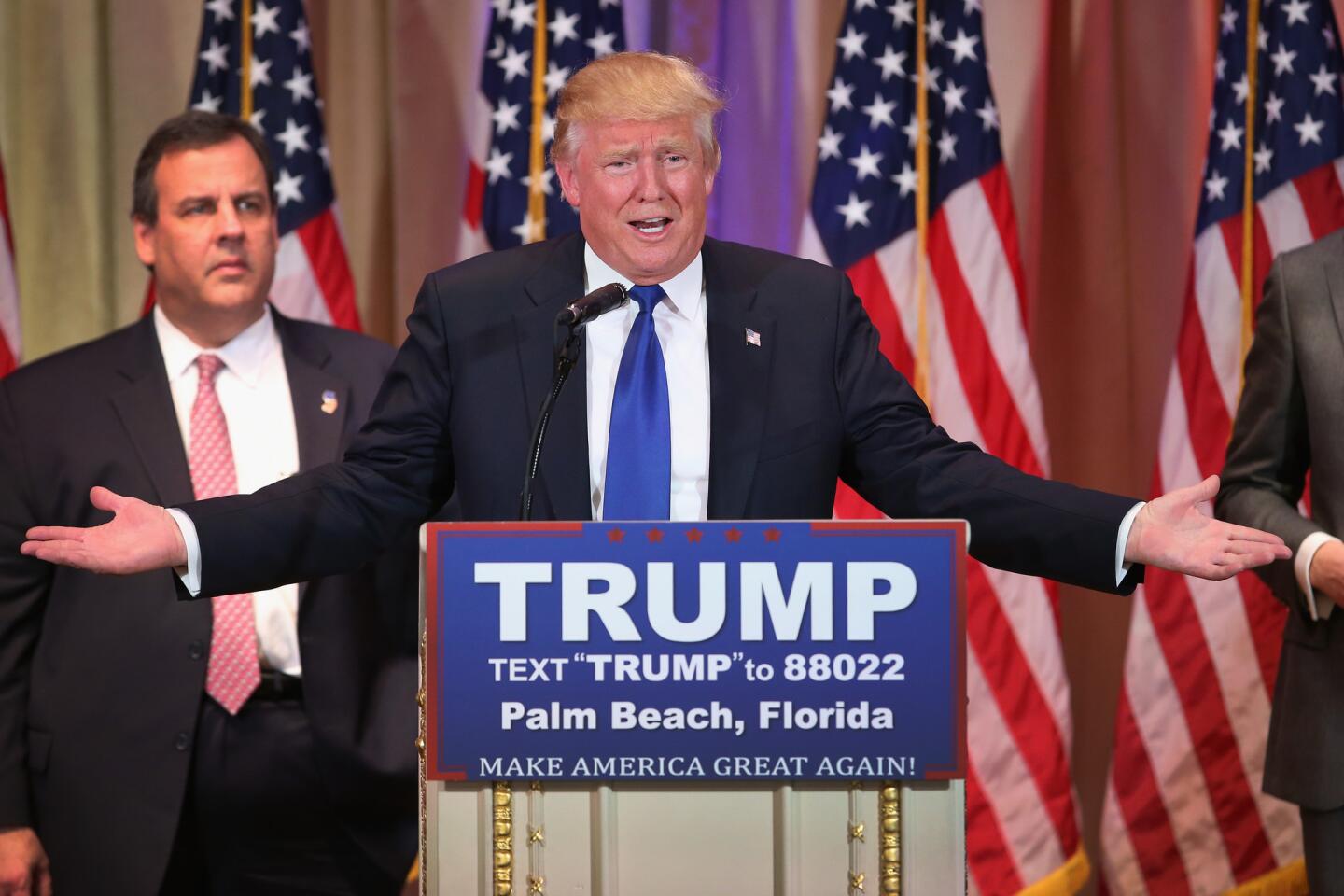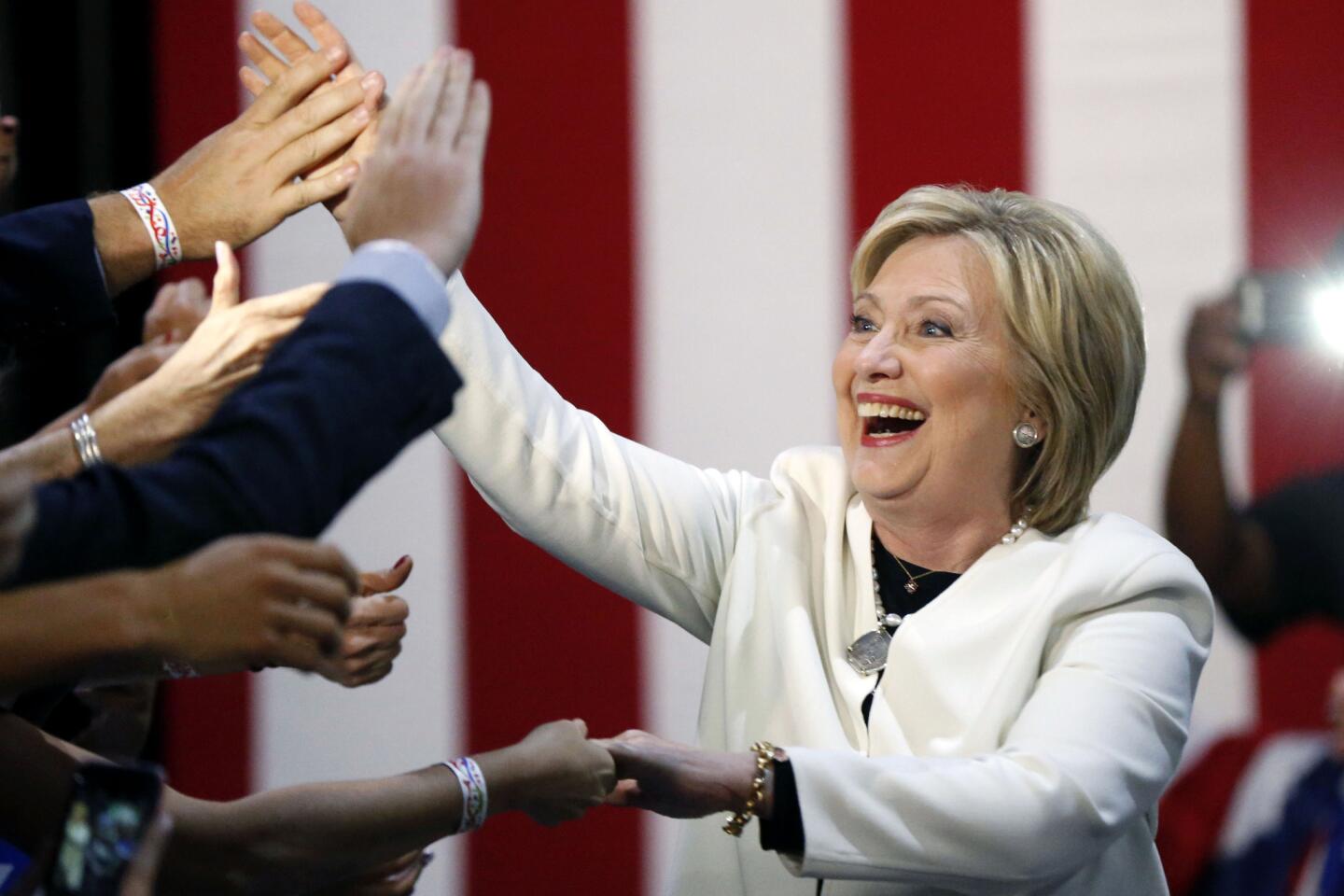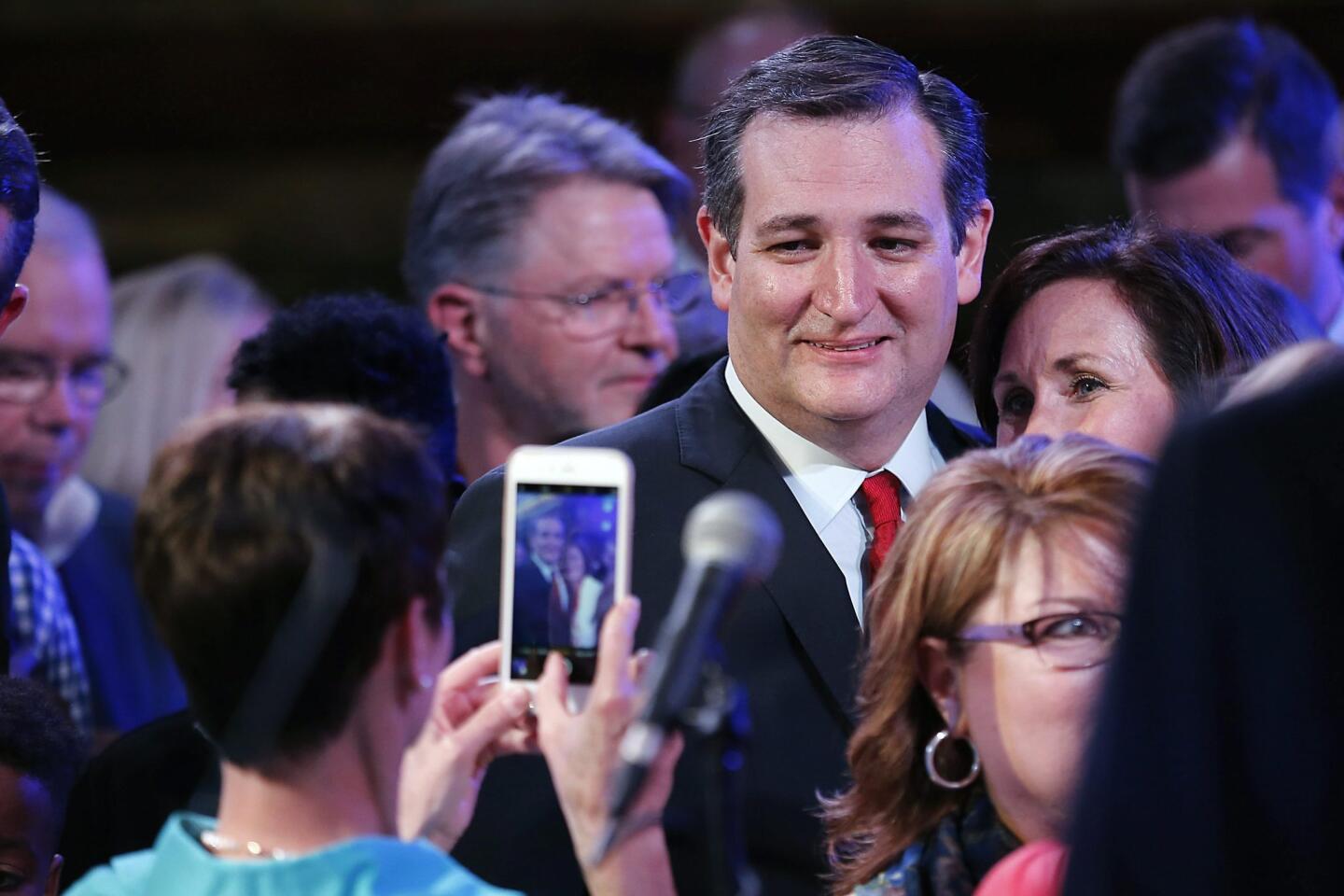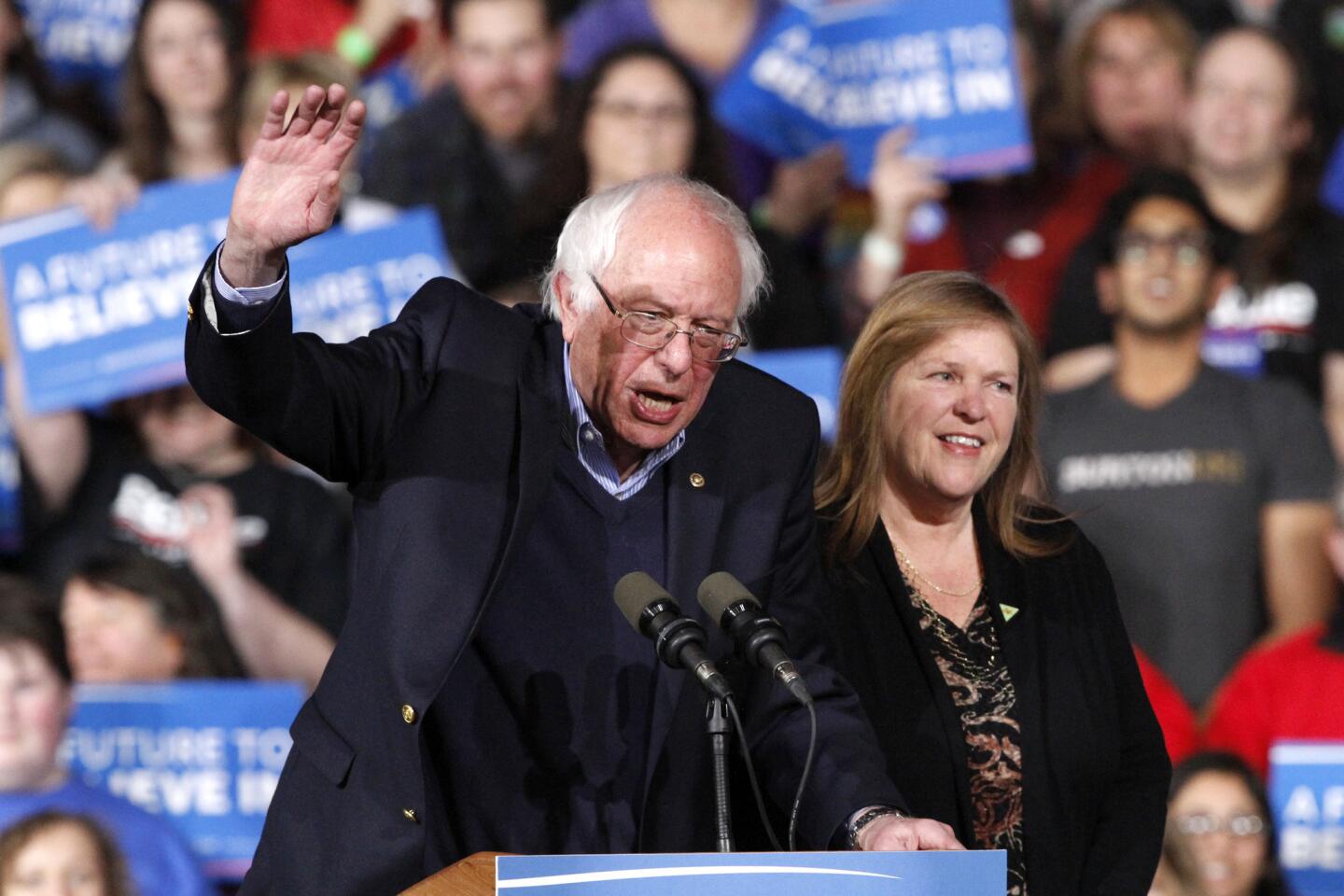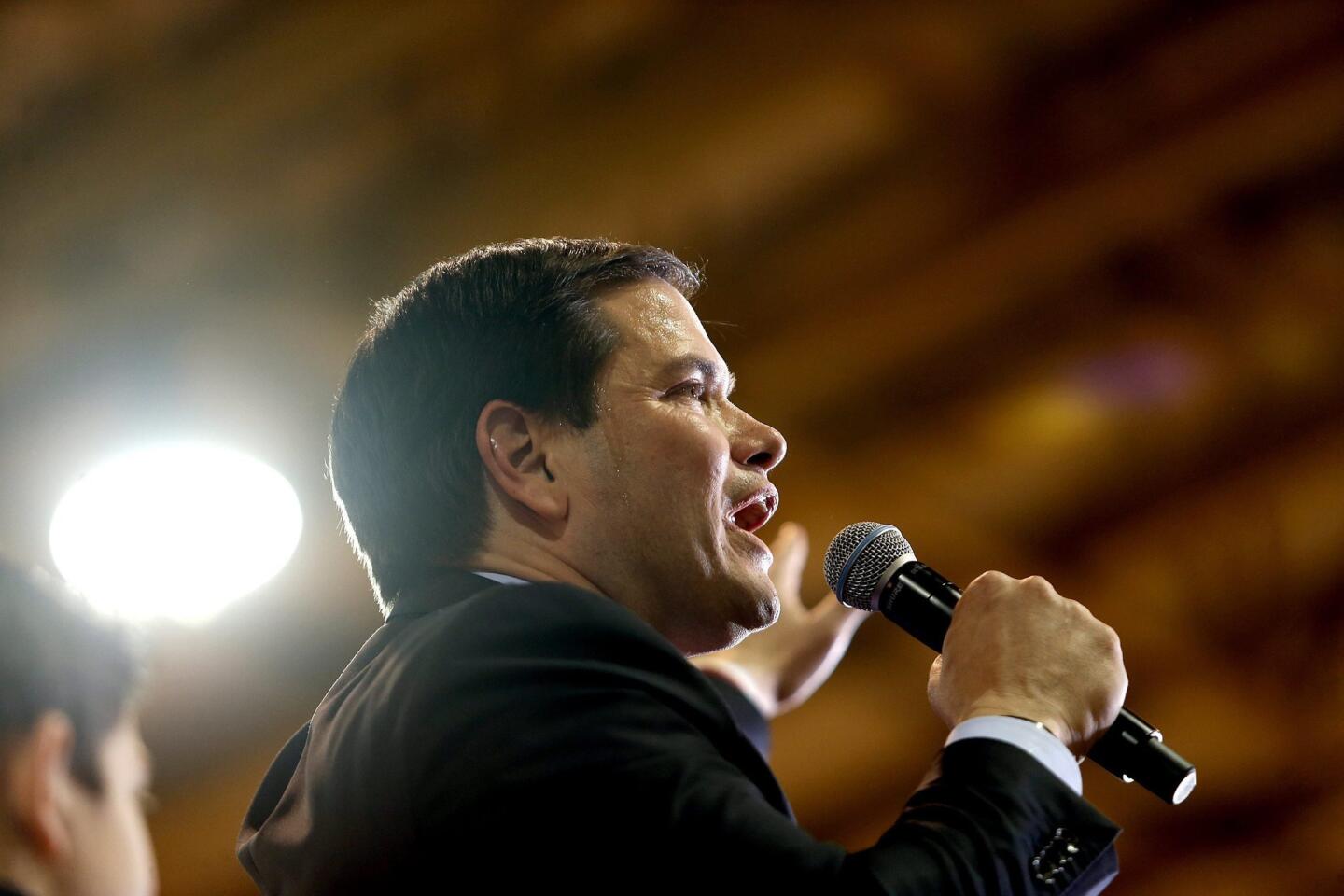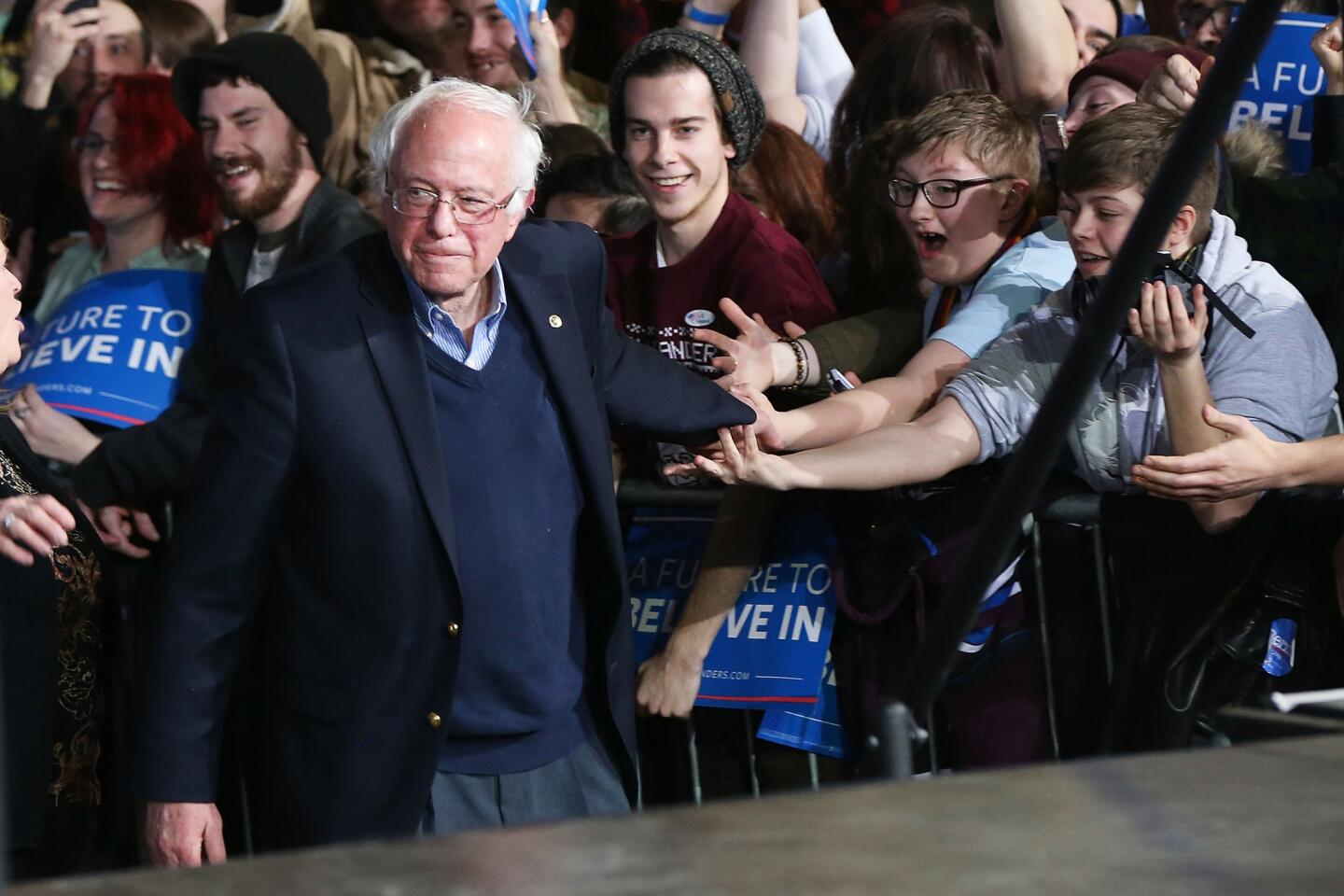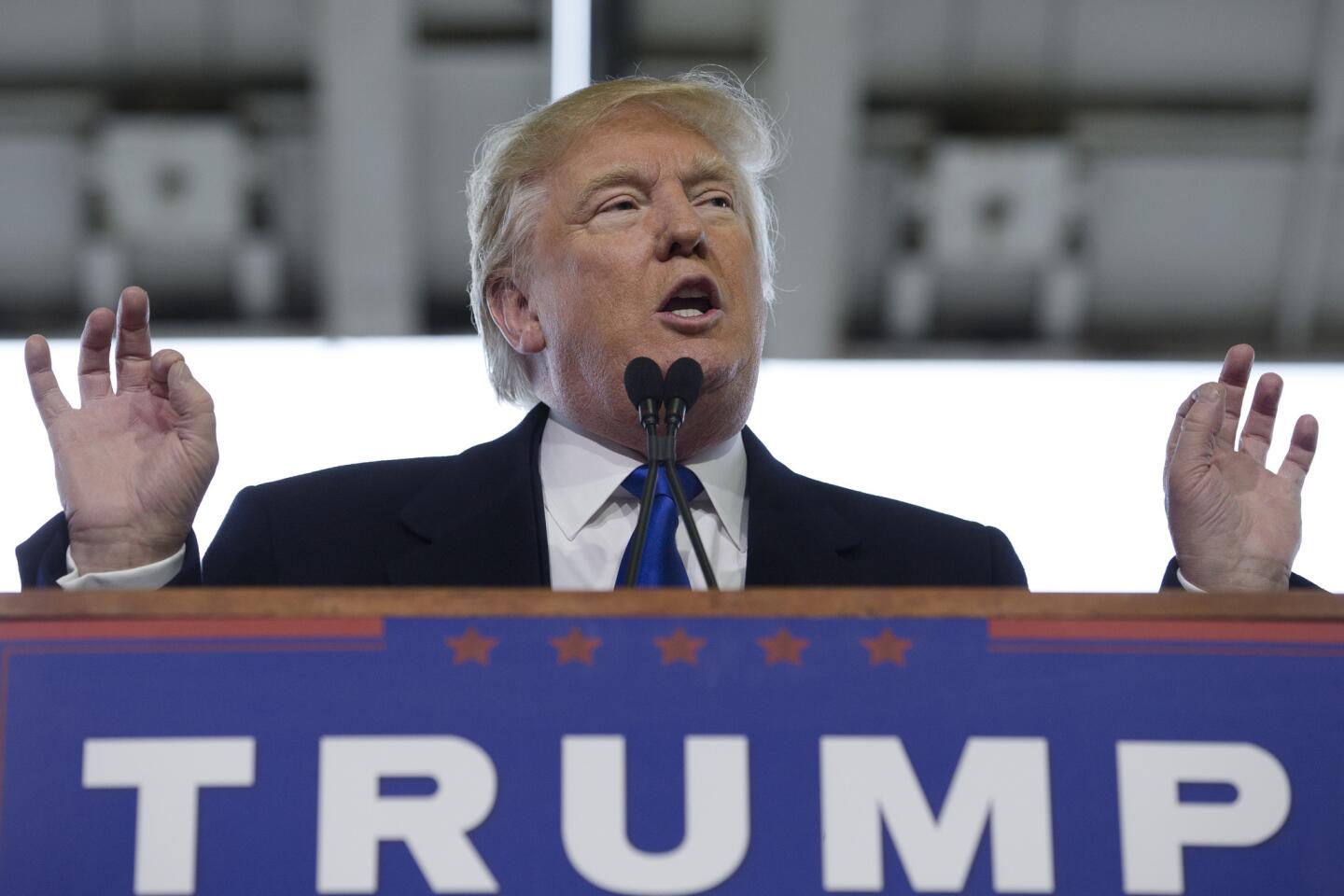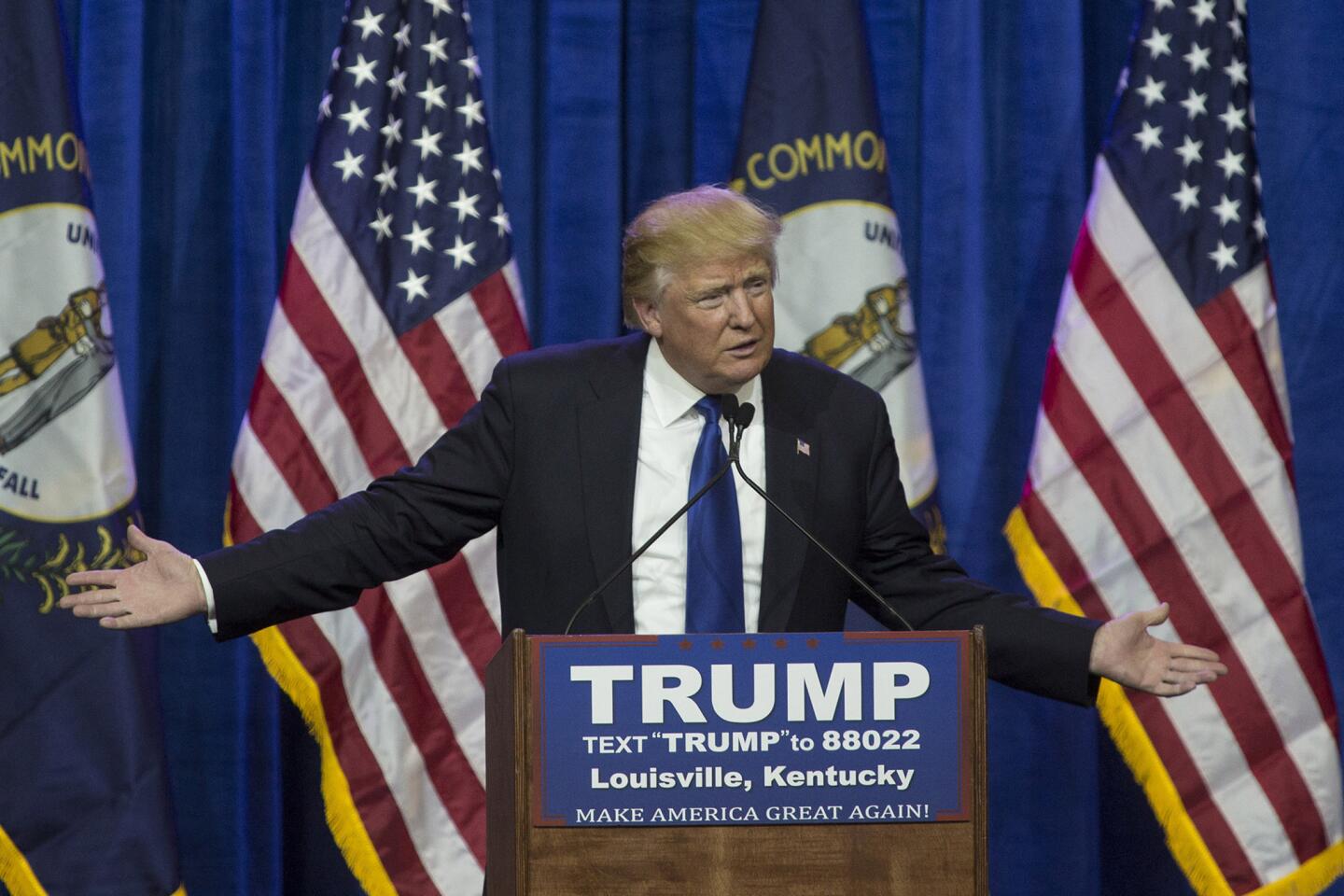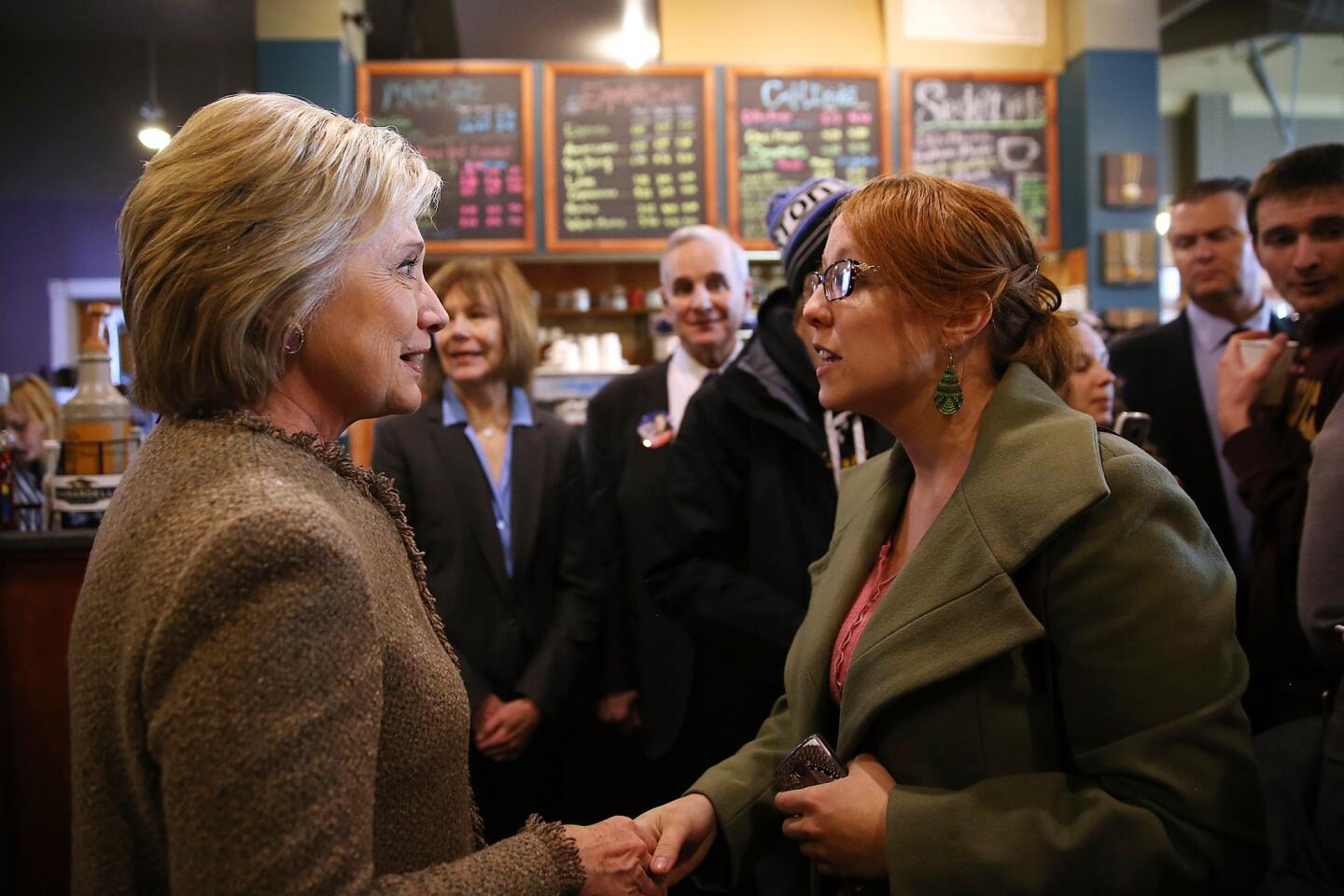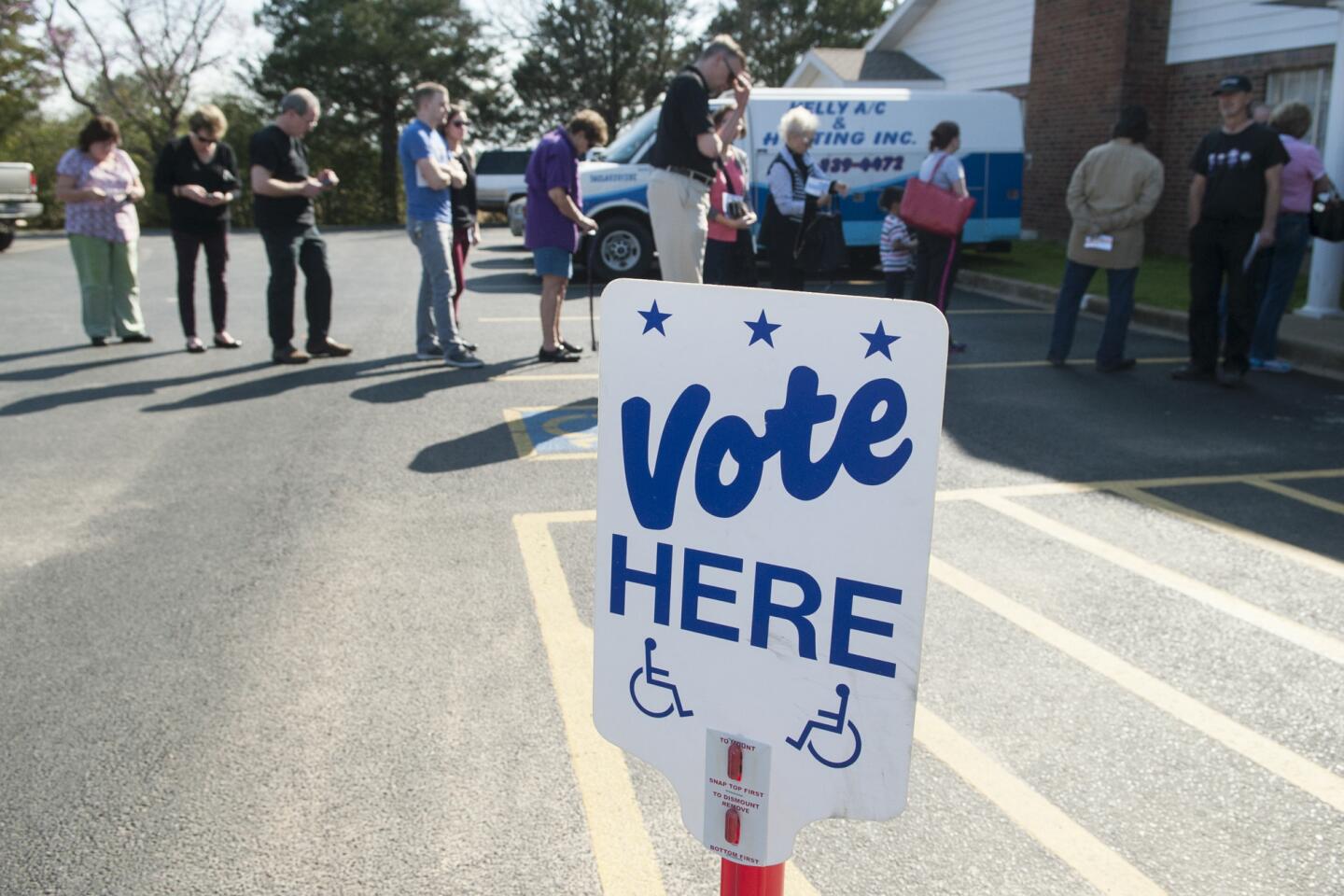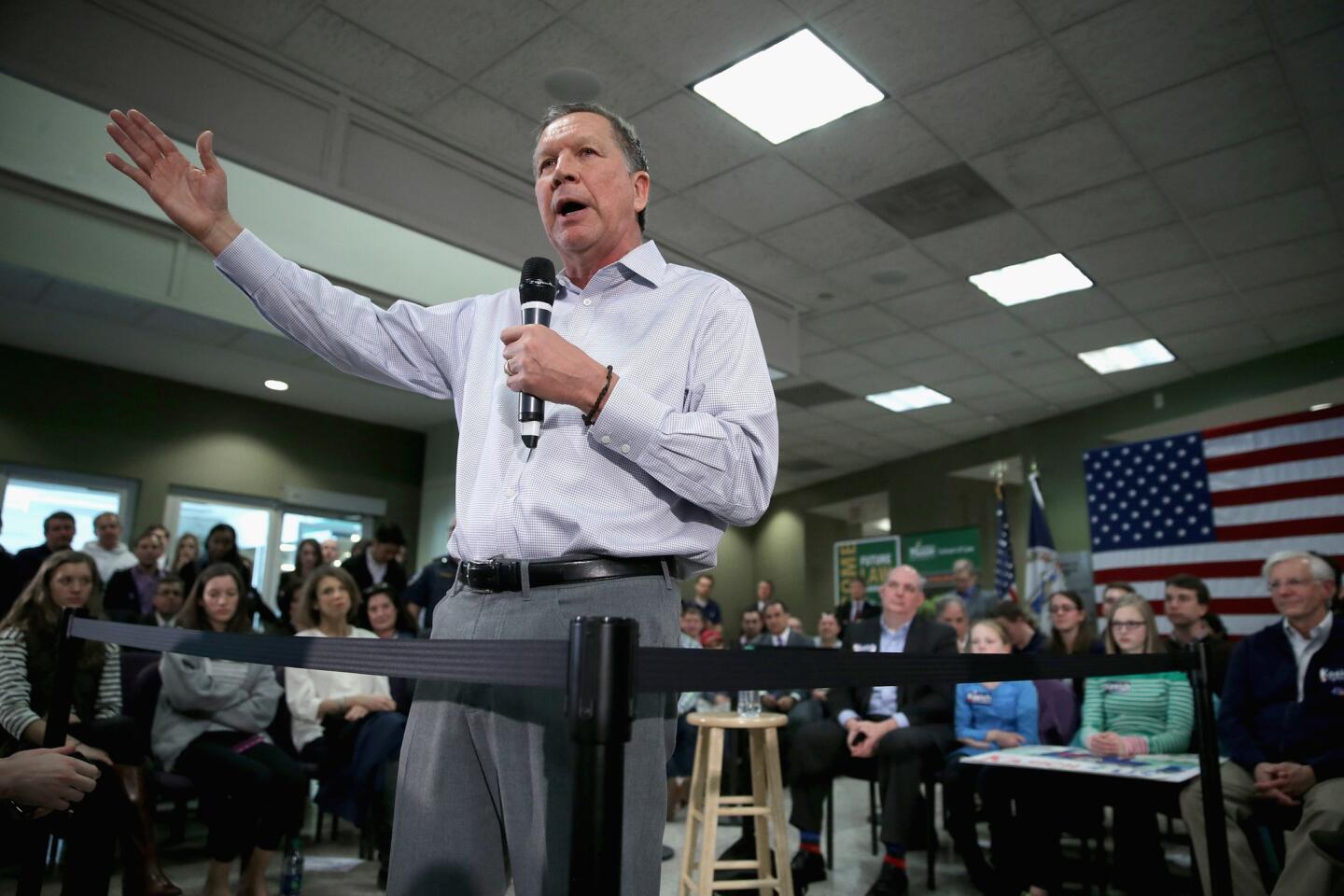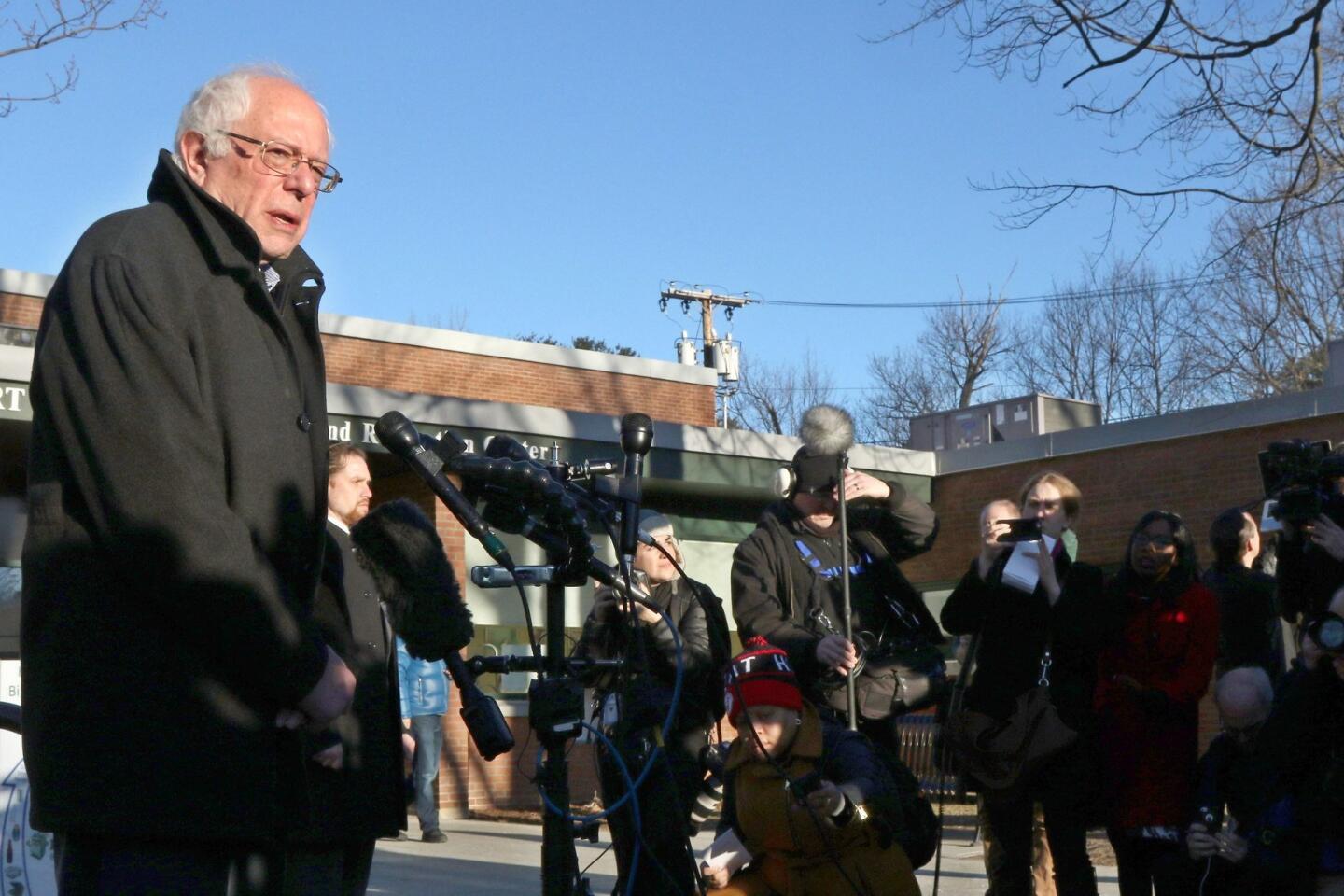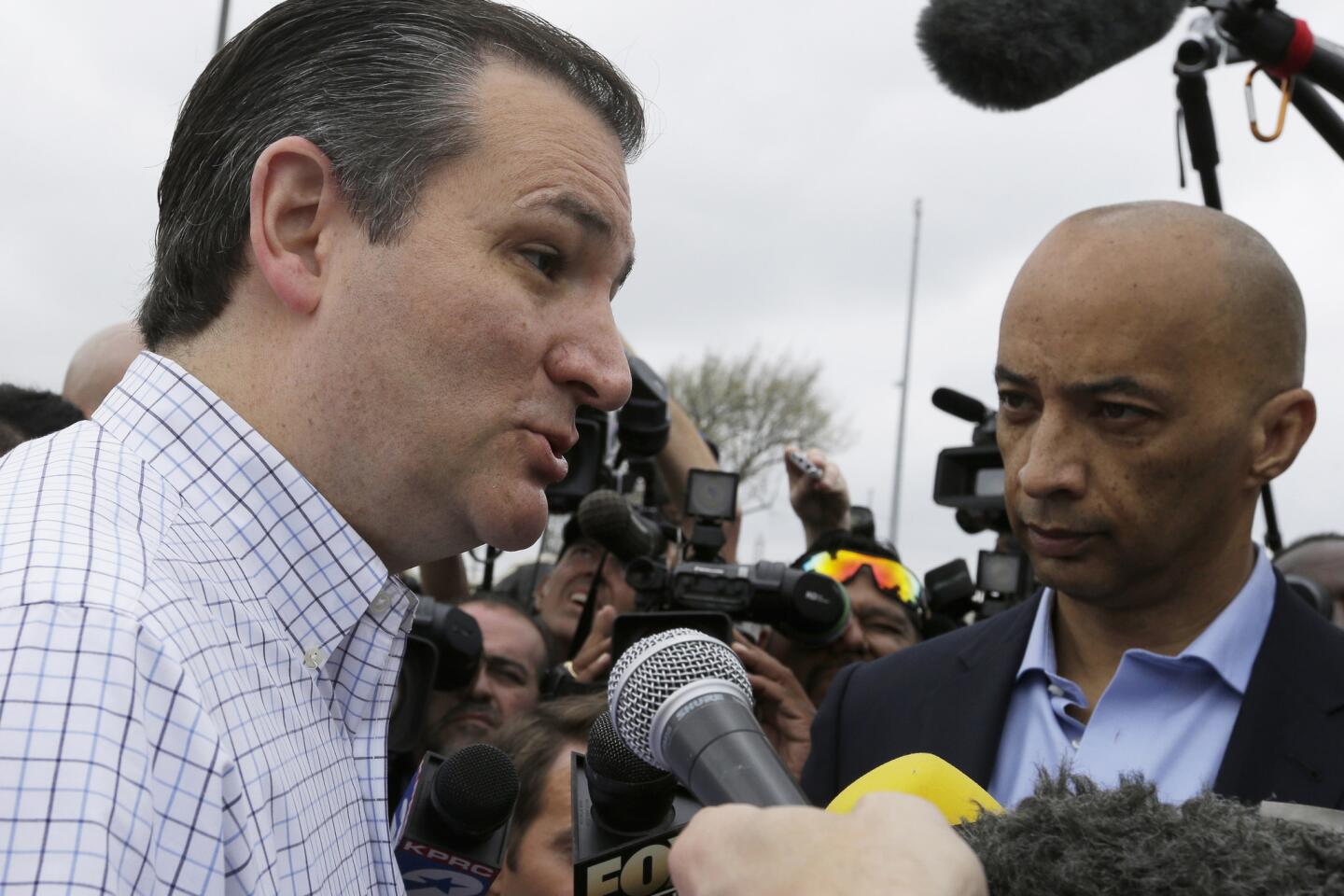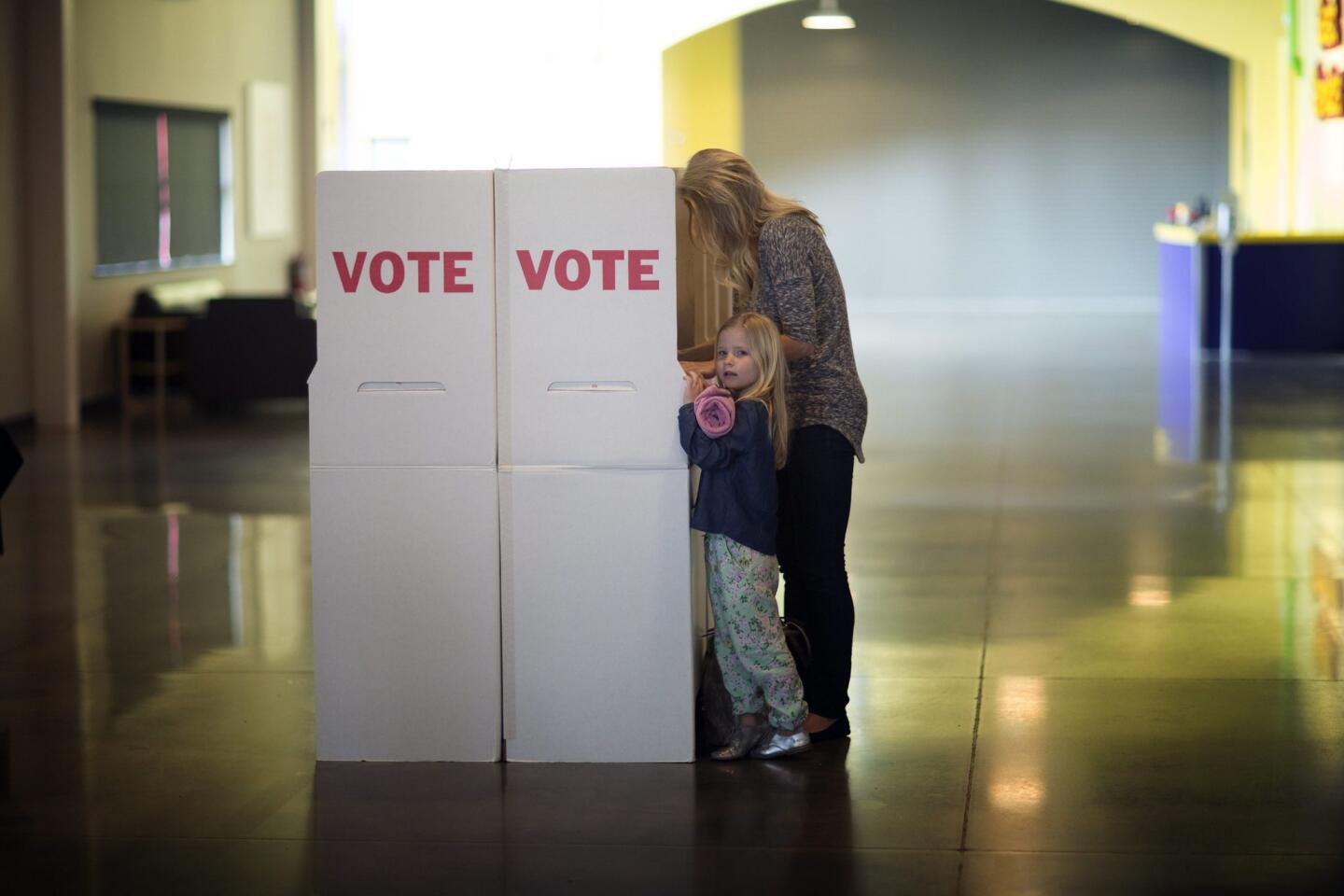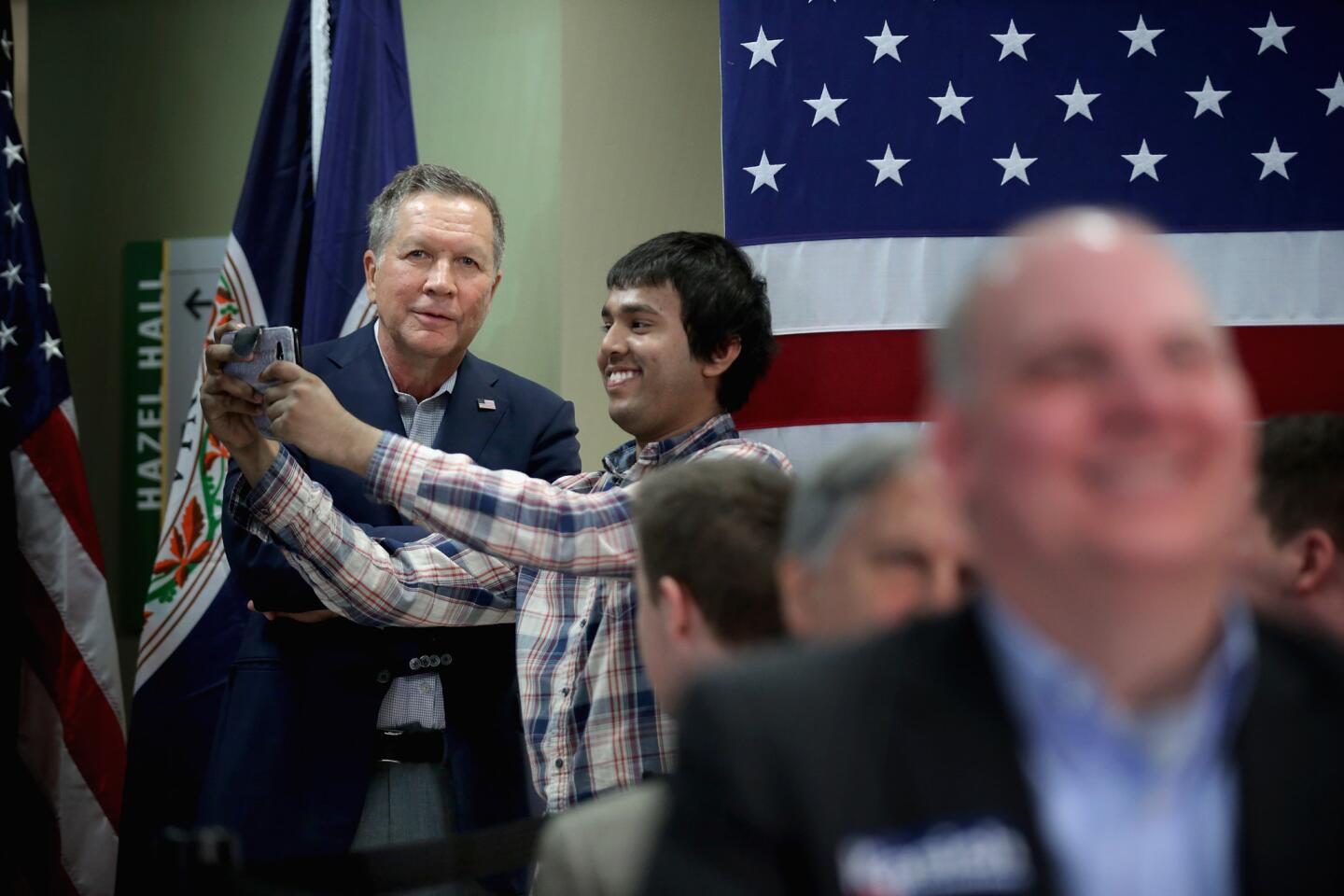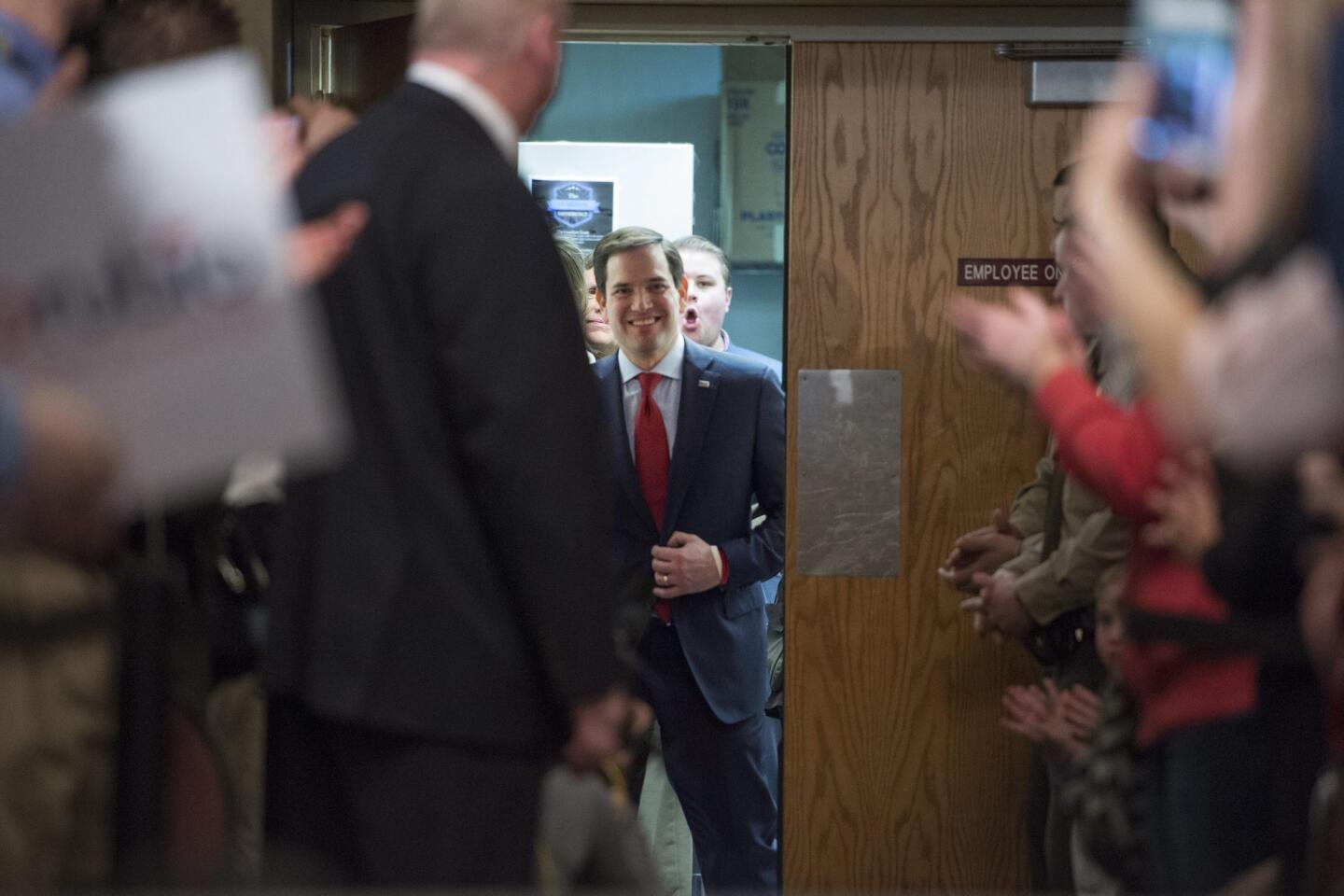Clinton’s Southern sweep gives her commanding lead; Sanders vows to continue
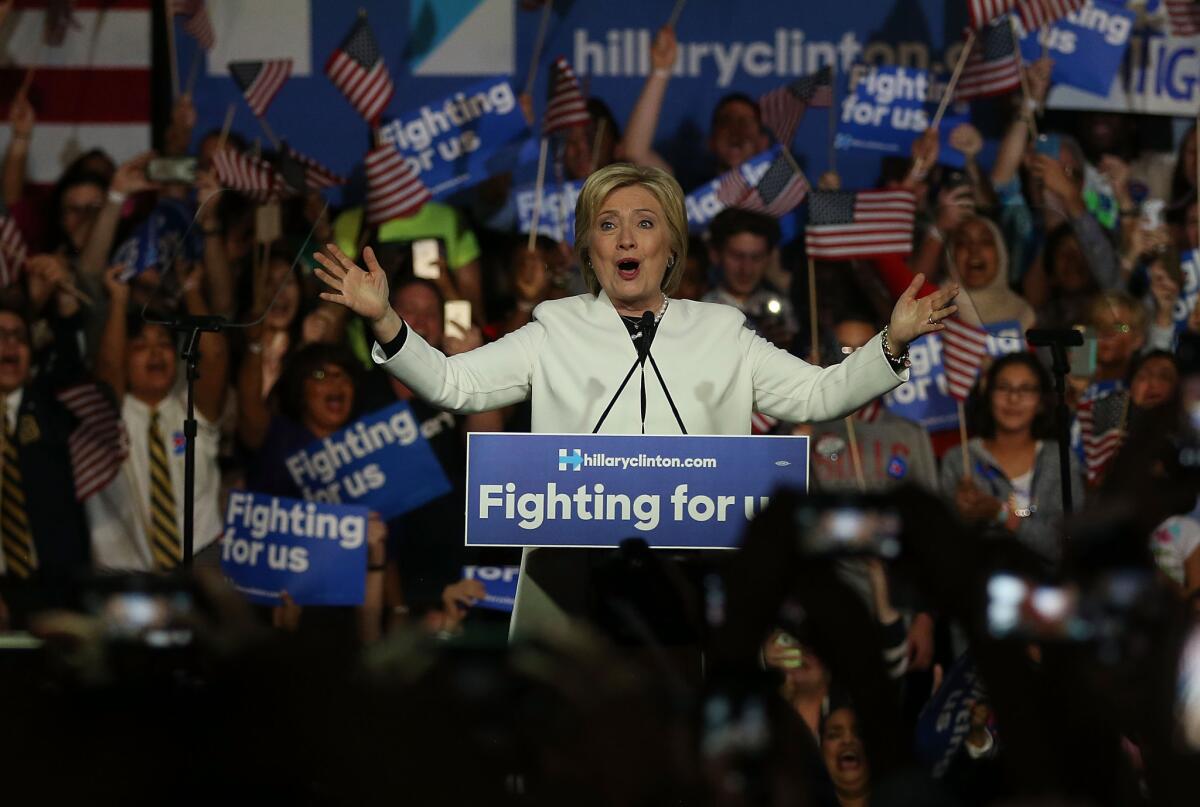
Hillary Clinton speaks during her Super Tuesday event in Miami.
- Share via
reporting from WASHINGTON — Hillary Clinton emerged from Super Tuesday having regained the mantle of prohibitive front-runner, decisively winning the biggest and most important states in an election that confirmed her overwhelming support from minority voters and left her rival with no clear opening to catch her.
Clinton appeared likely to rack up twice as many delegates from Tuesday’s contests as Sen. Bernie Sanders of Vermont, as she swept through the South with crushing victories in delegate-rich states including Georgia, Virginia and Texas. She also won a narrow victory in Massachusetts.
Along the way, she won more than 8 in 10 African American voters taking part in Democratic primaries, as well as two-thirds of Democratic Latino voters in Texas and a majority of white voters in at least six of the 11 states holding Democratic nominating contests.
Her double-digit margins of victory in state after state, including Tennessee, Alabama and her former home state of Arkansas, moved the race into a new phase in which she can focus on attacking Republican front-runner Donald Trump rather than tangling with Sanders, the 74-year-old democratic socialist whose earnest campaign has embarrassed her political machine at several turns.
As expected, Sanders won his home state of Vermont. He also prevailed in Oklahoma and in caucuses in Colorado and Minnesota, according to early returns and exit polls.
TRAIL GUIDE: All the latest news on the 2016 presidential campaign >>
Sanders vowed to keep fighting all the way to the Democratic convention this summer in Philadelphia.
Clinton, however, largely ignored Sanders as she spoke to supporters in Miami, where early voting already has begun ahead of Florida’s March 15 primary. Instead, she aimed her verbal barbs at Trump.
“The stakes of this election have never been higher. The rhetoric we’re hearing on the other side has never been lower,” she said. “Trying to divide America between us and them is wrong and we are not going to let it work. Whether we like it or not, we are all in this together.”
The speech reflected the impact Sanders has had on the race, even as Clinton starts to build a lead over him that is looking increasingly insurmountable. When she remarked on the greed of some of the wealthiest corporations and individuals, the need to nominate an unabashed progressive to the Supreme Court, or the urgency of global warming, it was as if she were channeling the Vermonter, who has continued to outperform Clinton with some groups of voters, particularly those younger than 30.
Clinton also focused her remarks heavily on the rights of immigrants and on racial injustice, particularly as she sees it playing out in the polluted drinking water coming out of taps in homes of the largely African American community of Flint, Mich. Her speech reflected the identity politics she has mastered over decades of working with minority communities. Sanders has struggled to make such connections despite his early activism in the civil rights movement.
But Sanders, speaking to supporters in Vermont, said he was not going anywhere. He noted that even after Tuesday night, 35 states had yet to vote.
“Let me assure you that we are going to take our fight for economic justice, for social justice, for environmental sanity, for a world of peace to every one of those states,” he said.
“This campaign is not just about electing a president,” Sanders said. “It is about transforming America. It is about making America the great nation that we know it has the potential to be.”
Despite a determined effort, Sanders has been unable to expand his support much beyond the white, liberal voters who began flocking to him last fall. In a Democratic contest, that’s an unsustainable position. More than 40% of the Democratic turnout Tuesday was projected to be nonwhite voters.
“You can’t win the nomination writing off the most diverse states,” said Brian Fallon, Clinton’s press secretary. “That’s the lesson from tonight.”
Democrats who voted Tuesday also were not looking for an outsider, according to exit polling. While Sanders has relentlessly and derisively tagged Clinton as an “establishment” politician, more than 8 in 10 voters said they preferred a candidate with deep experience over an outsider.
Houston lawyer Keith Hampton, 61, voted for Clinton on Tuesday, as did his 25-year-old daughter in Dallas. He said his 30-year-old son, a chef, backed Bernie Sanders.
“He says he’s going to get better benefits, raise the minimum age and address student loans,” Hampton said as he stood outside his polling place at a church in the heart of Houston’s liberal Montrose neighborhood near two Sanders signs.
But Hampton’s reasoning was simple: “Hillary can win. I don’t think Bernie can.”
Jimmy Grossman, 39, works in corporate sales and said he, too, voted for Clinton.
“I don’t believe much of what Bernie says,” said Grossman, who has always liked the Clintons. He listened to an interview with Sanders recently and thought, “How are they going to accomplish this? It’s funny young people are so influenced by this.”
“We need a woman,” Grossman added.
Even without counting her support from super-delegates — Democratic Party leaders and elected officials who can vote at the convention for whichever candidate they want — Clinton has pulled so far ahead of Sanders that he would have to win more than 60% of the delegates still up for grabs to get the nomination. Because the Democrats award delegates proportionately to each candidate’s vote, Sanders would need huge victories in most of the remaining states to achieve that.
Once a candidate falls behind, catching up is extremely hard, because even in a landslide both candidates receive delegates. Clinton learned that lesson eight years ago when she was the trailing candidate, trying unsuccessfully to catch then-Sen. Barack Obama. Now, she seems likely to be on the winning side of the equation.
Even so, Clinton won’t be in position to clinch the nomination for months. Those same proportional delegate rules mean that getting to a majority takes time.
Clinton’s path to dominating the Democratic race was set in place by a victory in South Carolina on Saturday, following the same pattern that Obama followed eight years ago. Similarly, in 1992, Bill Clinton used an impressive victory in South Carolina as a springboard that put him on the path to the nomination. In both cases, however, the candidates did not mathematically clinch the nomination until June. Hillary Clinton now seems poised to replicate their experience.
Sanders remains popular in some Northern and Western states, some of which voted Tuesday. He spent considerable time in the last week in Minnesota, whose mostly white electorate has a long tradition of backing progressives, including former Vice President Walter F. Mondale and the late Paul Wellstone, who both represented the state in the U.S. Senate.
The Vermonter has run a strong campaign so far, exceeding most expectations. But it was always built on the strategy of a big win in one of the early states that would propel him into contention in parts of the country where few voters had even heard of him until recently.
------------
FOR THE RECORD
March 1, 12:59 p.m.: An earlier version of this article incorrectly stated Bernie Sanders is the governor of Vermont. He is a senator from that state.
------------
Sanders got one early win in New Hampshire, where he tapped into disenchantment with what he calls the nation’s “rigged economy” and excitement about the plan for free public college that Clinton ridicules. Yet even the 22-percentage-point victory Sanders achieved in New Hampshire has proven insufficient to overcome the huge advantages Clinton has in organizing, name recognition and endorsements in key states.
Sanders poured extensive resources into the battle against Clinton in Nevada, but fell short. Since his loss in South Carolina on Saturday, he has in some ways been acting more like a candidate vying for a prominent speaking spot at the Democratic convention than one hoping to win the nomination. His spending on advertising over the last two weeks suggested he had all but given up in states such as Texas, Virginia and Georgia.
Yet Sanders still runs ahead of Clinton in recent fundraising, with his campaign bringing in an eye-popping $42 million in the month of February alone. Even if he trails far behind in the delegate count, that money would allow his campaign to continue through the end of the primary season, in June, when California votes.
Almost all of his money has come from small donors, who have made a record-setting 4 million contributions over the course of his campaign.
“That is more contributions — more contributions than any candidate in the history of this country, up until this point,” Sanders said in Minnesota over the weekend. “And do you know what that average contribution is?”
The audience shouted back a number that is well-known to Sanders supporters: “Twenty-seven dollars!”
Said Sanders: “With such a brilliant audience here, there’s no way we’re going to lose Minnesota.”
Staff Writers Molly Hennessy-Fiske in Houston and Chris Megerian in Miami contributed to this report.
Follow me: @evanhalper
ALSO
A complete breakdown of how delegates are awarded
See how much you remember from last week in politics
All of California’s voters are now in one online database
More to Read
Get the L.A. Times Politics newsletter
Deeply reported insights into legislation, politics and policy from Sacramento, Washington and beyond. In your inbox three times per week.
You may occasionally receive promotional content from the Los Angeles Times.
